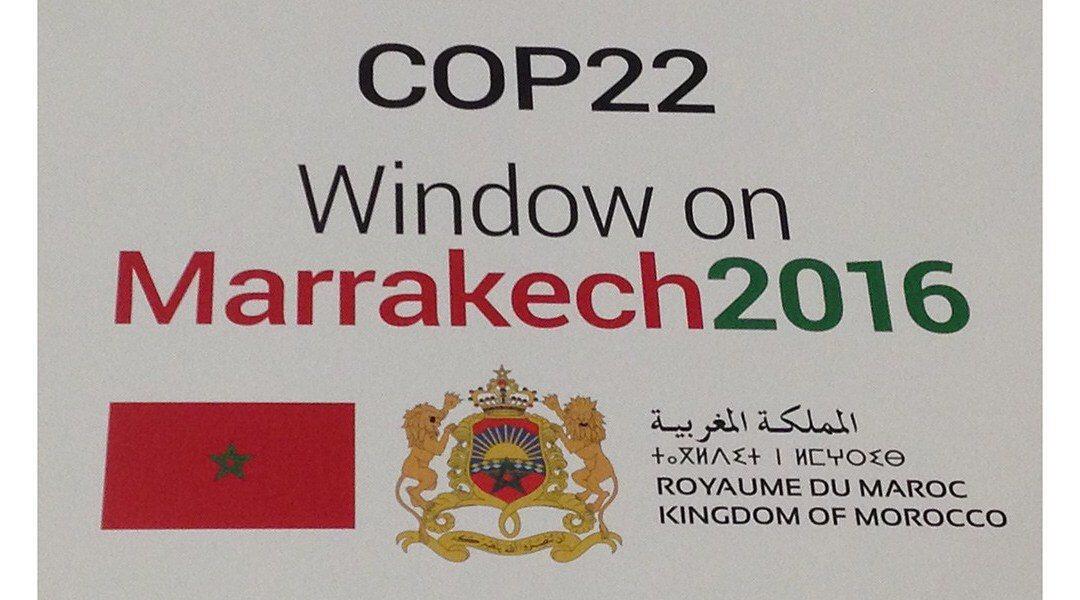The decision for Lebanon to be a member of Climate Vulnerable Forum (www.thecvf.org) is a decision taken by the government of Lebanon (through the Ministry of Environment and the Ministry of Foreign Affairs). In fact the Ministry of Foreign Affairs, in coordination with the Ministry of Environment has hosted a regional meeting in 2015 (Lebanon’s permanent mission to Geneva) and accordingly such a decision was taken by the two ministries (https://goo.gl/pcLRYS and https://goo.gl/37T5PM).
During the Fourth High-Level Meeting of the Climate Vulnerable Forum, which took place in the second week of the Marrakesh Climate Conference (COP22), two decisions were taken. These are reflected in the CVF Marrakesh Communiqué (http://www.thecvf.org/wp-content/uploads/2016/11/CVF-Marrakech-Communique-for-Adoption.pdf) and the CVF Vision (http://www.thecvf.org/wp-content/uploads/2016/11/CVF-Vision-For-Adoption.pdf).
A closer look at those two documents will show that none of them mentions the year 2050 nor stopping on extracting oil and gas. As for the 100% renewable energy, it is mentioned once in each of the above-mentioned documents (the CVF Communique and the CVF Vision) as follows:
- The Marrakesh Communique:
- Under the paragraph “We strive to lead” (page 2 of the Communique) states that: “further to greening our economies as our contribution towards achieving net carbon neutrality and 100% renewable energy…” we “state our commitment to develop and submit updated Nationally Determined Contributions as early as possible before 2020”.
- The CVF Vision
- (رؤية)(page 1) states that “CVF countries strive (and not commit) (تسعى الدول) to meet 100% domestic renewable energy as rapidly as possible, taking into consideration national circumstances.
Therefore, as indicated in the outcomes of the CVF from Marrakesh, there is no mention of any activities to be undertaken to stop oil and gas exploration and production, nor any target year for moving towards a 100% renewable energy in any of the countries (including Lebanon). In fact, a strategic study conducted at the Ministry of Environment has found that Lebanon has the potential of becoming carbon neutral by 2075. This is in agreement with the provisions of the Paris Agreement, which calls for a deep decarbonization by the next half of the 21st century. Referring back to the CVF Vision, which states “as soon as possible, taking into consideration national circumstances”, for Lebanon, this means within the second half of the second half of the 21st century.
The Paris Agreement stipulates that all countries will have to update their national contributions (official naming: nationally determined contributions) every 5 years. This means that the first update is due on 2020 (since the Paris Agreement was reached in 2015), the second update is due on 2025 and the third in 2030 etc. Therefore, the CVF Vision and Marrakesh Communique are emphasizing on the national commitments to revisit their respective NDCs no later than 2020, which complies with the Paris Agreement text.
Lebanon’s support to keep the global temperature rise below 1.5°C stems from the Paris Agreement text (article 2, paragraph 2, sub-paragraph a). The Paris Agreement was adopted by all countries (including Lebanon) in Paris in 2015; subsequently the Prime Minister of Lebanon, H.E. Mr. Tammam Salam, has signed the Paris Agreement on April 22, 2016 in New York. Therefore, this is the official position of the Lebanese government towards the Paris Agreement. It is worth mentioning that in international law, commitments are made when a national government signs and then ratifies (in case it needs ratification) a document, which then becomes binding.
The statement made by Lebanon during the CVF Fourth High-Level Meeting in Marrakesh where it was mentioned that “the most recent findings foresee a burden of nearly 17 billion dollars from negative impacts of climate change on the Lebanese economy in 2040, in case we allow the world temperatures to go beyond 1.5°C” is based on the results of the following study: https://goo.gl/11k2fw or https://goo.gl/KzLVVB, the results of which clearly indicate that Lebanon will be better off with lesser impacts of climate change; this requires to maintain global temperature increases to below 1.5°C.
All the above indicate that there was no “commitment” undertaken by Lebanon in Marrakesh with respect to moving to 100% renewable energy by 2050 and stopping oil and gas exploration.
Source: Climate Change team- MOE











